Though much of the cast remained until the end of the series, several actors such as Harry Morgan left MASH throughout its 11-season run. MASH was the second adaptation of the novel following the Robert Altman movie, which followed the experiences of a medical unit during the Korean War. MASH began as a comedy that nevertheless took the core theme seriously, and while the showrunners were forced to include a laugh track, they were able to drop it from scenes involving surgery. In later seasons, it evolved from a sitcom to a dramedy, with some episodes being borderline laugh-free.
The series ended up lasting eight years longer than the Korean War itself, with MASH’s finale being the most-watched scripted TV episode of all time. MASH’s unique fusion of laughter and drama had never quite been attempted before and would prove influential on future shows like Scrubs. Considering it ran for 11 years, it’s little surprise several MASH actors left the show during its run, sometimes to avoid typecasting or just to move on to other projects.
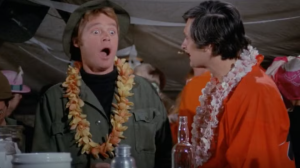
George Morgan Father Mulchy – Only Appeared In Pilot The earliest and most mysterious MASH departure is actor George Morgan, who played Father Mulchy in the pilot episode. Before MASH, Morgan had appeared in the Western series Bonanza and Robert Downey Sr.’s cult film Putney Swope, and while Morgan only played Father Mulchy for one episode, he can still be spotted in the opening credits of every episode. As was relatively common at the time, actors who appeared in a pilot could be recast when it went to series, due to factors ranging from cast chemistry to retooling the character’s role.
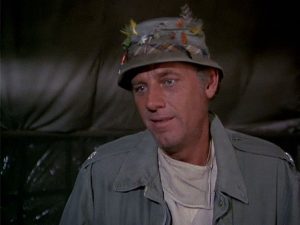
McLean Stevenson Col. Henry Blake – Left In Season 3 Not only was McLean Stevenson’s exit a major turning point for the series, but his MASH death was also a groundbreaking TV moment. Stevenson played Colonel Henry Blake, the commanding officer of the 4077th during MASH’s first three seasons. Blake had a somewhat easygoing approach to running the 4077th and often let Alan Aldi’s “Hawkeye” Pierce and Wayne Rogers’ “Trapper” get away with their shenanigans. Blake was especially close to Radar (Gary Brushoff), who hardly ever left his side and would seemingly psychically sense whenever Blake needed him. While there was no tension between Stevenson and his MASH co-stars, as the show became more successful, he grew frustrated with being part of a large ensemble. He decided to leave and was written out in the season 3 finale “Abyssinia, Henry,” where Blake receives an honorable discharge and leaves the camp. To the shock of MASH’s main characters – and audiences watching – Radar later informs everyone that Blake’s plane was shot down, killing all onboard. While it’s not unusual for a major show to kill a major character now, back when this episode aired in 1975, such a move was unheard of. Killing off supporting characters audiences had grown to know and love was a bold move and one that paid off ratings-wise. It was also a controversial choice, with some furious viewers penning letters to CBS, with the network even cutting the ending of the episode out of a later re-run. Unknowingly,
“Abyssinia, Henry” was to be the final episode for another major cast member too.
Wayne Rogers Trapper John – Left After Season 3 Just like the MASH movie, the first three seasons were something of a two-hander between the characters of Hawkeye and Wayne Rogers’ “Trapper” John. Rogers actually passed on auditioning for Hawkeye in favor of Trapper, as he found the character’s less cynical personality more appealing. Rogers joined MASH on the understanding Hawkeye and Trapper were equal main characters, but as Aldi’s popularity with audiences grew, the writers began to focus on Hawkeye more and more.
Rogers grew tired of feeling sidelined and that Trapper had become Hawkeye’s sidekick, so he decided to quit. MASH’s producers were deeply unhappy with his decision and threatened to sue. However, it was soon revealed Rogers had never actually signed his original contract, as he objected to a “morals clause” present in it. This meant the producers had no case, and Rogers was free to leave. This explains the abrupt exit of Wayne Rogers’ Trapper on MASH season 4’s opening episode, with his character being discharged offscreen, but leaving no goodbye notes for best friend Hawkeye. Rogers went on to roles in shows like the medical sitcom House Calls, which lasted for three seasons.
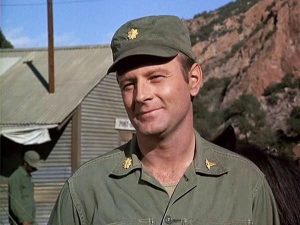
Larry Linville Frank Borne – Left After Season 5 Larry Linville inherited the role of Major Frank Burns from Robert Duvall, who played the part in the 1970 movie. Those were tough boots to fill, but Linville became a memorably nasty villain on MASH’s small-screen adaptation. Burns is a judgmental, self-absorbed and selfish figure who was widely despised by the 4077th. He was also strictly by the book, meaning he naturally hated Hawkeye and Trapper. The only person who actually liked Frank was Margaret (Loretta Swat), with the two having an ongoing affair despite the fact Burns is married. Linville decided to leave MASH after five seasons, having grown bored with playing such a Weasley character. He also felt the show’s swing towards more dramatic material made the cartoonish antagonism of Burns a bad fit. On the show, Burns’ exit is explained by him being somewhat heartbroken when his affair with Margaret ends on a bad note, and she becomes engaged to somebody else. MASH’s season 6 premiere explains Frank was sent back to the States for a psychiatric evaluation after a drunken night out in Seoul. The unit is, naturally, overjoyed by the news he’s gone for good.
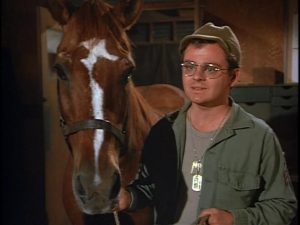
Gary Brushoff Radar O’Reilly – Left In Season 8 Gary Brushoff was the only real holdover from the MASH movie, and he played the role of Corporal “Radar” O’Reilly in both. The Radar seen in the series was a much more naïve, innocent figure, however, and he became a real audience favorite. Brushoff grew exhausted by the show’s schedule in later years, and despite the fact previous actors who left – such as McLean Stevenson and Larry Linville – had met with little success, Brushoff decided to leave MASH during season 8. Radar’s MASH exit is one of the most emotional on the show, and in contrast to other departing performers, it happens onscreen. Radar leaves when he is given a hardship discharge to go back to his family farm, following a death in the family. Following his departure, Brushoff went on to guest roles on the likes of The New Adventures of Wonder Woman and Fantasy Island. He also made a guest appearance as Radar on After MASH, before appearing in a solo spinoff called W*A*L*T*E*R, where the character becomes a police officer. While W*A*L*T*E*R was intended to launch another spinoff, it didn’t make it past the pilot.
None of the actors who left MASH had big careers following their breakouts on the comedy drama series. McLean Stevenson was a huge fan favorite on MASH, but after leaving the show, he didn’t do much of anything other than take on some guest starring roles in shows like the Golden Girls. He also served as a guest host on The Tonight Show multiple times, but his career never recovered from quitting MASH, and he calls it one of his most regrettable decisions (via L.A. Times):
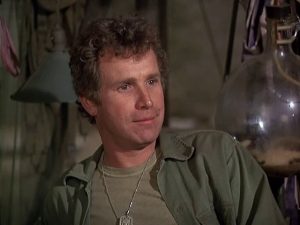
Wayne Rogers quitting the show the way he did, and with him never signing his contracts, caused the franchise to move on from him completely. There was a MASH spinoff series called Trapper John, M.D., which followed the character after returning home, but the franchise didn’t use Rogers and recast the role with Pernell Roberts as Trapper John. Other than his run on House Calls, Rogers’s career mostly consisted of minor roles and a recurring character in Murder, She Wrote.
Larry Linville left when he felt his character no longer fit, so it seemed that he might have a better reception outside of MASH, but it also didn’t happen. He mostly just played a guest role in several TV shows and minor film appearances. That is also how Gary Burgh off’s career went, as he was also relegated to television guest roles and game show appearances. As for George Morgan, his career was the most disappointing, only getting two roles after leaving MASH after the pilot.
